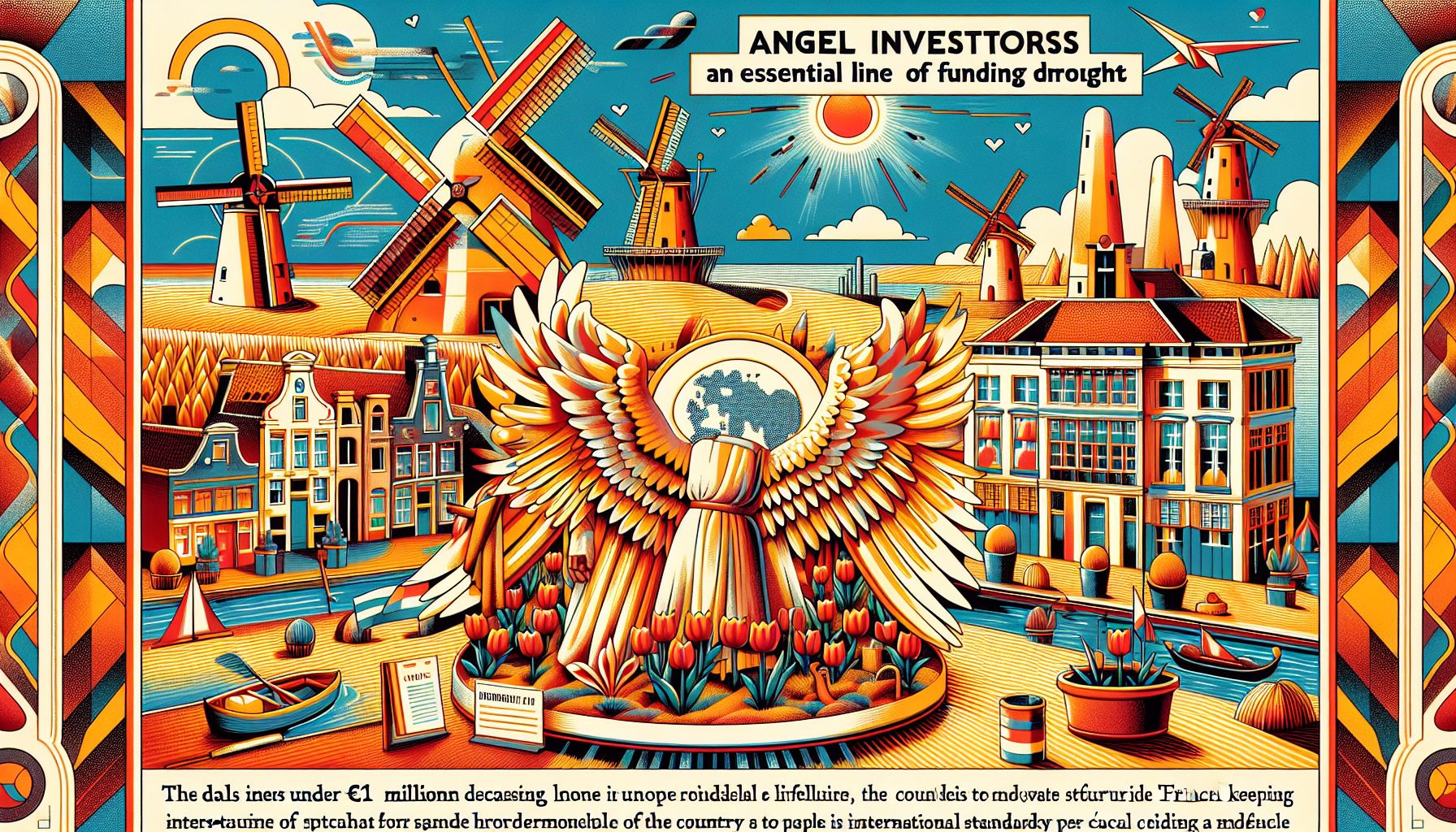Angel Investors: The Lifeline for Early-Stage Startups in Funding Drought

Netherlands, Friday, 9 August 2024.
As venture capital firms retreat from early-stage investments, angel investors are becoming crucial for startup development in the Netherlands. Despite record funding levels, early-stage deals under €1 million have consistently decreased, with the country lagging behind international standards in per capita investments.
The Decline of Venture Capital in Early-Stage Investing
Since 2018, venture capital firms have halved their investment in early-stage startups, redirecting their focus towards more mature companies. This shift has created a significant funding gap for nascent businesses in the Netherlands, which are now struggling to secure the capital and expertise needed during their most vulnerable phases of development[1].
The Critical Role of Angel Investors
Angel investors are stepping in to fill this void, providing not just financial backing but also invaluable knowledge and industry connections. Unlike venture capitalists, angels often have a higher risk appetite and are willing to invest in startups during their formative stages. This is particularly crucial in the Netherlands, where the share of angel investments in early-stage funding is significantly lower than international levels, a mere 8% compared to Sweden’s 24%[1].
Economic and Innovation Implications
The presence of angel investors can have far-reaching implications for the Dutch economy. By nurturing startups through their critical early stages, angel investors contribute to a robust innovation ecosystem. Successful startups can potentially reinvest in new ventures, creating a virtuous cycle of growth and development. However, the current shortage of angel investors limits these opportunities, stymieing the potential for innovation and economic expansion[1].
Incentivizing Angel Investments
Organizations like Techleap.nl are actively exploring ways to incentivize angel investments to close this funding gap. They are studying successful models from other countries, such as the UK’s Seed Enterprise Investment Scheme (SEIS), to implement similar initiatives in the Netherlands. Additionally, efforts are being made to capture and map the Dutch angel investor community to better understand their practices and barriers, aiming to foster a more supportive environment for early-stage startups[1].
Community and Network Building
Platforms such as the US Angel Investment Network and Angel Investors Network on LinkedIn are playing a pivotal role in connecting entrepreneurs with potential investors. These networks offer startups the opportunity to pitch their ideas and gain access to experienced investors who can provide not only capital but also strategic advice and mentorship. Such community-driven approaches are essential for cultivating a thriving startup ecosystem[2][3].
Conclusion: The Future of Early-Stage Funding
As venture capital firms continue to scale back on early-stage investments, the role of angel investors becomes increasingly vital. By stepping in to provide the necessary funding and expertise, these investors are helping to bridge the gap, ensuring that innovative startups in the Netherlands can thrive. The success of these efforts will depend on continued support and incentivization from both public and private sectors, fostering a more dynamic and resilient startup ecosystem[1].

